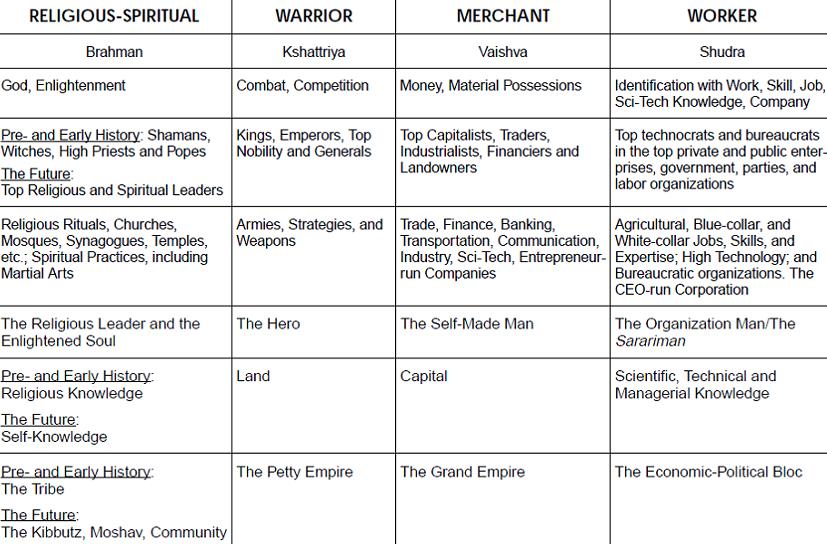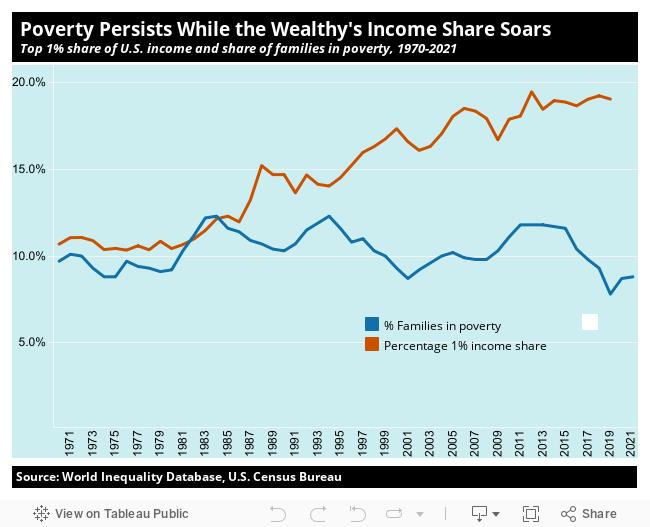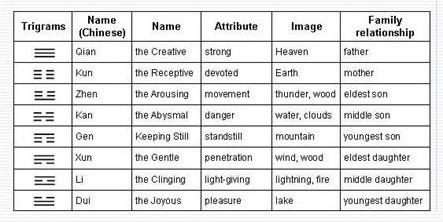Latest stories

Is the shine coming off Japan's bullet trains?

US to convert oil rigs into floating missile defense sites

Kishida goes all-in on partnership with the US The trading conflict between the West and China is a repeat on a larger scale of the trading conflict with Japan. In the 1980s, Japan decimated the Western automobile and consumer electronics industry. When it was too late, the West realized Japan had eaten its lunch. The Chinese are now poised to eat their dinner.
Workers and Merchants In 2001, US president Bill Clinton gave the green light for China's membership of the World Trade Organization (WTO), the American-led body that regulates global trade.
In exchange for membership, China agreed to reduce tariffs on nonagricultural products and several measures to open up China's financial market, among them the life insurance and securities industry.
The US government reasoned that China would become politically more liberal if its economy was liberalized. Fukuyama's“End of History” appeared to give credence to this theory. As it turned out, China liberalized economically but not politically. The Chinese government wanted to keep a firewall between business and government.
The American futurist Larry Taub, author of“The Spiritual Imperative”, framed the struggle between China and the West in terms of Worker and Merchant, archetypes he borrowed from Indian philosophy. Worker and Merchant, together with Scholar and Protector, are four generic categories that form the basis of societies.
The Indian“social-psychological” archetypes emerged after humans transitioned from nomadic, hunter-gatherer life to form communities and cities. Each archetype covers a vital role in a community – teaching, producing, trading, and protecting.
The four archetypes have different psychological profiles and different worldviews. Workers, in Taub's model all those who work for a wage or salary, value safety, stability, and solidarity. They are followers, not leaders. Merchants value opportunity, innovation, and freedom. Generating wealth is the primary concern.

The four archetypes Taub borrowed from Indian philosophy
In Indian philosophy, the four archetypes are in a cyclical struggle, one trying to overcome the other. The Indians used astronomical timeframes lasting millions of years, but Taub argues that the four archetypes can explain actual history as well as the present and the future.
In Taub's model, the current conflict between the West and China is a battle between the Worker and Merchant worldview. China's psychological profile most closely resembles the Worker archetype, and the West, especially the US, most closely correlates with the Merchant archetype.
Neoliberalism Taub argued that the battle between the Worker and the Merchant started in the 19th century, in response to the Industrial Revolution. Workers demanded better working conditions from the Merchants. Communism and socialism emerged and united workers to fight for their rights.
By the 1960s, the Workers had made massive gains, among them a five-day workweek and a social safety net, including healthcare and pensions. Worker unions had become powerful institutions that could influence government policy.
A backlash came in the 1970s, with the emergence of neo-liberalism. This reactionary hybrid ideology advocated market-oriented reform such as deregulating capital markets, and privatization of state-owned industries. It was an anachronistic call for a partial return to free-for-all conditions that prevailed in the 19th century.
With support from Merchants, the neoliberal agenda gradually spread into politics. In the 1980s, the neo-conservatives Ronald Reagan and Margaret Thatcher embraced the neoliberal agenda, followed in the 1990s by the“leftist” Bill Clinton and Tony Blair. They sold neoliberalism to their poorly informed supporters as“The Third Way.”
It soon became clear that neoliberalism didn't benefit the US as a country. Wealth concentration returned to 19th-century levels and millions of Americans dropped out of the middle class. In 1970, the US was the world's largest creditor nation. Today it is the largest debtor nation while China became its largest creditor.

The legacy of Neoliberalism
The role reversal of the US and China suggests that conventional Western ideologies are no longer a useful guide to understanding global changes.
Ideologies developed in response to social and economic changes. Communism (like fascism) was a Worker response to the imperialist Merchant-dominated colonial era. It was the secular equivalent of a liberation theology.
Ironically, orthodox communism became untenable because it sidelined the Merchants. Neoliberalism is failing because it sidelines the Worker. As the Indian sages noted millennia earlier, all of the four archetypes are required for a fully functional society.
Reciprocity With the reforms initiated by Chinese leader Deng Xiaoping in the 1970s, China reintegrated the Merchants into society, without allowing them to hijack the political system. When celebrated billionaire Jack Ma, founder of Alibaba, became too big for his boots, the government put him in his place.
Chinese leaders continue to pay lip service to communist ideology, but the country has moved into the post-ideological era. Pragmatism has returned as a guiding principle. As Deng famously remarked, it doesn't matter if a cat is black or white, as long as it catches the mouse.
Today, China is looking at its own rich cultural and social history to find a way forward beyond political ideology.
That is not to say that China ever stopped being Chinese. All through the revolutionary phase of communism and even during the ideology-driven vandalism of the Cultural Revolution, China remained a Confucian country at heart.
Confucianism is foundational to Chinese consciousness. It is what sets the country apart from India. Confucianism, in turn, was based on the notion of Tao and inspired the development of a key feature of Chinese society: the notion of reciprocity.
Confucius based his social construct on the I Ching, the“bible” of the yin-yang system. The I Ching is based on the Eight Trigrams, compounded yin-yang symbols denoting eight natural phenomena. In Chinese cosmology, the interaction of the Eight Trigrams shaped the natural world.

Confucius“appropriated” the Eight Trigrams for his social construct.
Confucius expanded the attributes given to the Eight Trigrams by adding the eight members of a nuclear family. This linked China's social structure to the yin-yang principle of nature. The Father is yang, the mother is yin, and the children a combination of yin and yang.
The yin-yang system has a hierarchical dimension, but in the social context, this hierarchy is situational. A man is yang to his wife, but yin to his boss, even if the boss is female. A woman is yin to her husband but yang to her children, both boys and girls. In a social context, let alone in an international context, determining what is yin and yang in any given situation is an art, not a science.

Sign up for one of our free newsletters The Daily ReportStart your day right with Asia Times' top stories AT Weekly ReportA weekly roundup of Asia Times' most-read stories
Reciprocity is the operating principle in the yin-yang system. It implies the mutual embrace of a shared purpose and shared values. Unlike altruism, which is based on unequal relationships, reciprocity is based on mutual dependencies.
Reciprocity is embedded in China's social fabric and interpersonal relationships and plays a role in both family and social life. It maintains harmony within families, communities, and business life and fosters a sense of solidarity, cooperation, and teamwork.
China's traditional, primarily collectivist culture partly explains its rapid modernization. Chinese civil engineers pioneered industrial methods like prefabrication, standardization, and modularization. The city of Daxing, a metropolis of 84 square kilometers built in the 6th century, was completed in one year.
A new story China became the world's leading industrial nation by learning from the West. Like Japan before, it took from the West what it found valuable and avoided what did not fit its worldview and values.
In barely one generation, China became an industrial superpower. Today, it dominates globally in 75% of the technologies seen as essential for the Fourth Industrial Revolution.
The US has not been sure-footed in its response to the Chinese challenge. To outcompete China economically would require a major overhaul of government priorities, a difficult task given the influence of neoliberalism and the polarization in US politics.
Cultural communications scholar Bill Kelly, author of“A New World Arising”, points at the dilemma facing the West.“Neoliberalism,” according to Kelly,“led to community breakdown, the alienation of the individual, and the loss of an overriding aspiration that a majority can embrace. This puts the West at a considerable disadvantage in terms of socially mobilizing its people behind government leadership.”
Neoliberalism is the ugly expression of the Merchants' mindset and a remnant of colonial days. Knowing it can't compete with China's industrial giants, it tries to prolong Western military and financial hegemony at all costs. It fights foreign wars on the pretext of protecting freedom and democracy at home, a ruse intended to keep the Workers distracted.
Instead of taking their cue from Francis Fukuyama, the neoliberals should have heeded the warning of historian Paul Kennedy. In his book“The Rise and Fall of the Great Powers”, Kennedy explained that the relative decline of great powers often stems from overstretch. Declining powers extend their military commitments beyond what their economic resources can sustain.
The US is not only overstretched, it is highly in debt, it has a narrow industrial base and its biggest economic rival also happens to be its largest creditor and one of its largest trading partners. Something will have to give, and when it does, the US and its Western allies will need a new story that is in sync with the 21st century.
Already have an account?Sign in Sign up here to comment on Asia Times stories Thank you for registering!
An account was already registered with this email. Please check your inbox for an authentication link.